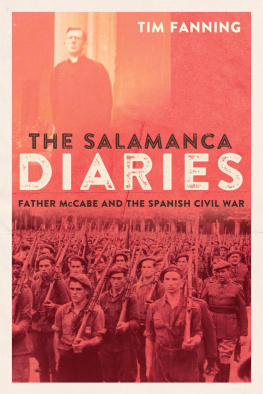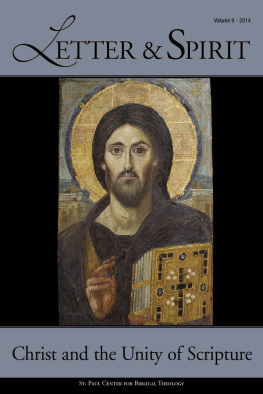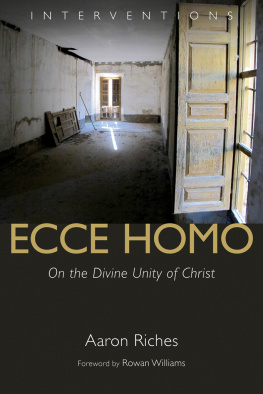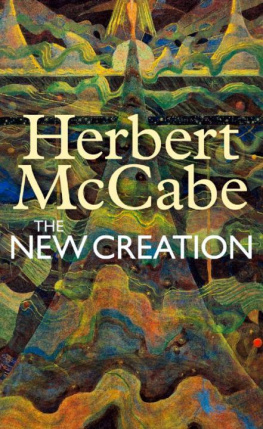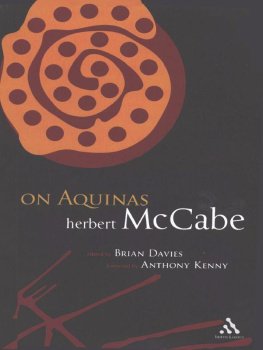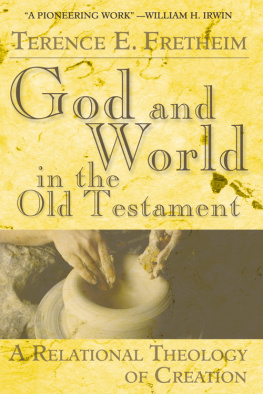Other books by Herbert McCabe also published by Bloomsbury:
God Matters
God Still Matters
God, Christ and Us
Law, Love and Language
God and Evil in the Theology of St Thomas Aquinas
Acknowledgement
Author and publisher wish to acknowledge their debt to the editors of The Life of the Spirit and Blackfriars, in which much of the material of this book made its first appearance.
Contents
TO BERNARD AND LUCY
Herbert McCabe died in 2001. Since his death several posthumous works of his have appeared and all of them have been very well reviewed. Their favorable review is not surprising since McCabe was an extraordinarily gifted thinker and author. He was a great philosopher. But he was also a great theologian. He was very much a disciple of Thomas Aquinas, whose thinking pervades almost all that he wrote. Yet he often used to say that Aquinas was not a Thomistthe point being that Aquinas would have been horrified at the thought of his writings being taken to be the last word on the topics discussed by him. McCabe always sought to treat Aquinas as someone who might be brought into contemporary debates, both philosophical and theological. This is very evident from his posthumously published texts.
But it is also evident from what he published in his lifetime, as the present book clearly shows. The New Creation originally appeared in 1964 and is certainly one of McCabes best works. Written with his characteristic clarity and wit, and containing many of the emphases that marked his later writings, it can be read as his most sustained essay in biblical theology. Its focus is the sacraments of the Church, but, working on the principle that to theologize well depends on understanding the theology of the past, the book ranges copiously over Old and New Testament passages while trying to indicate what sacraments can mean today. People have often told me how impressive and helpful they have found it, so it is very good that Continuum is now reprinting it.
In terms of its insights and sheer readability, The New Creation is a truly excellent book. Its theology is superb and very relevant to us as we currently try to think about the nature and significance of sacraments. Readers will discover that, given the date of its first publication, McCabe sometimes refers to liturgical norms that are not now prevalent (he assumes, for example, that Catholic priests regularly celebrate the Eucharist with their backs to the congregation). It is, however, a sign of McCabes theological genius that such references detract not one whit from the profundity of the thinking that McCabe tries to convey in the book. Good introductions to sacramental theology are hard to come by. The New Creation is one not to be missed at all costs.
Brian Davies OP
Fordham University
New York
Christ is present to us in so far as we are present to each other. We are born with a constitutional inability to live together in love; we achieve a precarious unity only with great difficulty and for a short time; there is a flaw in the very flesh we have inherited which makes for division between us. The very thing that should make us one, the fact that we come into existence as members of one family, is the source of our isolation. The nature in which we are born is twisted and tends to alienate us from each other. Whatever community we try to set up by purely human means, whether it be the family or the political community, we fail to reach real unity. This is the story of Babel; in the city built by men to reach to the heavens, the tongues of men are confused and they fail to understand one another.
St. Lukes account of Pentecost shows us the way in which human community will be reached; with the coming of the Spirit of Christ, men who have hitherto been divided by language and culture come to understand one another. The teaching of the Bible is that the goal of mankind, real unity in love amongst men, can only be reached by dying to our injured human naturethe unity we have as members of Adams raceand rising again to a new physical human community in the risen Christ. The human race, astonishingly, is not destined to die out as other species have done, to be replaced by others in the course of evolution. It will be transformed and live eternally. Transformed humanity will not as a whole exist physically until the second coming of Christ; then we shall rise again with our flesh cured of its weakness and glorified by the divine life it will share.
Already, however, because of the resurrection of Christ, the new humanity exists. His risen body is the foundation of the new human race. Already, moreover, we can belong to the new creation, not yet physically but sacramentally; our bodies make contact, real contact, with the risen Christ through mysteries, symbols in which he is present to us. In these same mysteries we are able to be really present to each other. The sacraments can be regarded as mysteries of human community, as symbolizing the union in the Spirit between men which they bring about, as well as mysteries of Christs action or of his bodily presence. These two ways of looking at them come, indeed, to the same thing.
This book is a study of the sacraments as mysteries of human unity, as the ways in which men are able to break down the barriers between them and form a real community. It is a study, therefore, of the sacraments as constituting the Church, for the Church is nothing but the community which sacramentally foreshadows the life for which God has destined man. She is, so to speak, a living picture of the unity that God has in store for the human race. But she is not just a picture; because Christ is risen her mysteries do not simply show forth something in the future, they also partially realize something that is present. In the Church the new creation is already realized, though in a hidden way. It is because of our realism about the bodily resurrection of Christ that we take a realist view of the sacraments. Christ is alive in a human bodily way, and hence he is not just someone to be thought of, to be remembered, to be present only in the mind. These are our ways of trying to reach out to a man who is absent, but Christ is not absent as are the dead, he can be with us in the flesh and his way of being with us is the sacramental system.
We can no longer treat the sacraments, as Catholic writers have sometimes done in the past, as aids to the spiritual life which the Church is fortunately able to dispense to her children, we must return to the classical tradition in which they are seen as our living contact with the humanity of Christ through which alone we share in divine life.
The central difficulty of our subject is the notion of sacramental reality. This is something that crops up whether we begin our discussion with the Church as a whole or with some individual sacrament. In both cases we are dealing with something that eludes our ordinary categories of thought. Thus, the Church is not simply the visible organization of men and institutions in the sense that a political community is a visible organization; nor, on the other hand, is her reality to be found in some quite invisible communitythe community of those who actually love God, or the community of the predestined. In the same way, the sacraments are not simply the external gestures that can be seen by anyone, nor is their reality something purely invisible. Both of the Church and of the sacraments we have to say that they exist at some intermediate level, or at least that they cannot exhaustively be described at either level. In a sense the purpose of this book is to draw attention to this intermediate level of reality, for here Church and sacraments are one; the sacraments show themselves as different aspects of the life of the Church; the Church appears as the great sacrament, the mystery of Christs presence amongst us.
Next page

